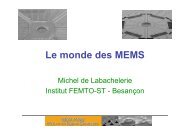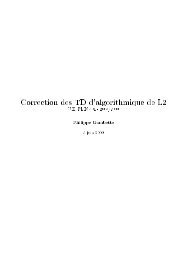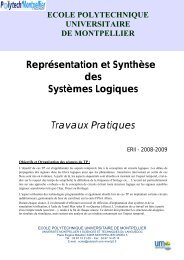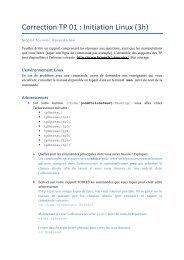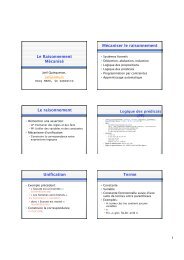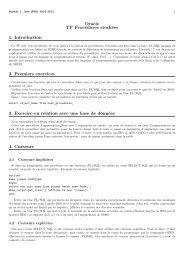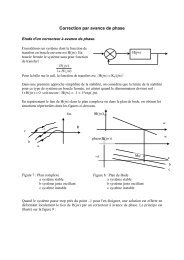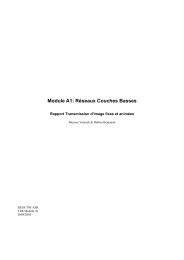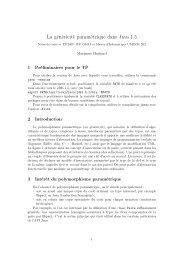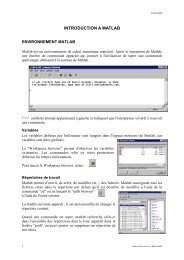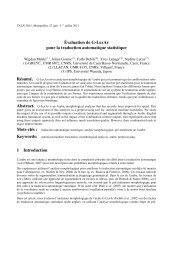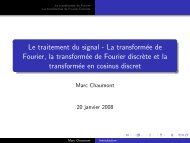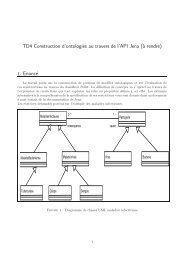Evaluating User Experience in Games: Concepts and Methods - Lirmm
Evaluating User Experience in Games: Concepts and Methods - Lirmm
Evaluating User Experience in Games: Concepts and Methods - Lirmm
You also want an ePaper? Increase the reach of your titles
YUMPU automatically turns print PDFs into web optimized ePapers that Google loves.
13 Us<strong>in</strong>g Heuristics to Evaluate the Overall <strong>User</strong> <strong>Experience</strong> 253<br />
score cannot represent the written review <strong>in</strong> its entirety <strong>and</strong> is therefore less accurate.<br />
Still, us<strong>in</strong>g the review score allows us to draw the conclusion that the user experience<br />
of a game is worse the less it adheres to the heuristics. To further prove this<br />
statement, we suggest more extensive empirical evaluations <strong>in</strong>volv<strong>in</strong>g more games<br />
that belong to several different genres other than the five tested so far. Also, games<br />
with a greater variety of review rat<strong>in</strong>gs (e.g. extremely low-rated games) should be<br />
<strong>in</strong>cluded. Additionally, test<strong>in</strong>g games still under development could further prove<br />
the concept of apply<strong>in</strong>g heuristics dur<strong>in</strong>g all stages of the development process.<br />
The ideal outcome of such tests could then be a def<strong>in</strong>itive number of heuristics<br />
which have to be fulfilled <strong>in</strong> order to grant an optimised user experience. Further<br />
studies are also suggested to <strong>in</strong>vestigate the best possible comb<strong>in</strong>ation of the three<br />
areas covered by our framework <strong>and</strong> to advance the heuristics for tabletop games<br />
which offer a new possibility to evaluate advanced <strong>in</strong>teraction games. Additionally,<br />
an evaluation of the tabletop-specific heuristics accord<strong>in</strong>g to a similar collection<br />
of reviews such as Metacritic.com would allow for a more reliable rat<strong>in</strong>g of our<br />
heuristics. For a broader applicability of the entire framework, application- <strong>and</strong><br />
device-specific heuristics for advanced <strong>in</strong>teraction games other than tabletop games<br />
could be developed. Therefore, the overall usefulness of the framework for different<br />
k<strong>in</strong>ds of games can be evaluated.<br />
For the heuristics <strong>in</strong> particular, experience has shown that an additional category<br />
concern<strong>in</strong>g the graphics quality <strong>and</strong> connected issues could be needed for an extensive<br />
evaluation of a game. Furthermore, differentiation regard<strong>in</strong>g the various aspects<br />
of the virtual <strong>in</strong>terface (e.g. ma<strong>in</strong> menu or <strong>in</strong>-game menu) is needed. To allow for a<br />
better comprehension of the s<strong>in</strong>gle heuristics, the <strong>in</strong>clusion of exemplary graphics<br />
is recommended.<br />
References<br />
Amaya G, Davis JP (2008) <strong>Games</strong> user research (GUR): Our experience with <strong>and</strong> evolution of four<br />
methods. In: Isbister K, Schaffer N (eds) Game Usability. Morgan Kaufmann, San Francisco,<br />
CA.<br />
Barakonyi I, Weilguny M, Psik T, Schmalstieg D (2005) MonkeyBridge: Autonomous agents <strong>in</strong><br />
augmented reality games. In: Proceed<strong>in</strong>gs of the 2005 ACM SIGCHI International Conference<br />
on Advances <strong>in</strong> Computer Enterta<strong>in</strong>ment Technology (Valencia, Spa<strong>in</strong>, 15–17 June 2005). ACE<br />
’05, Vol. 265, ACM, New York, pp. 172–175.<br />
Bernhaupt R, Eckschlager M, Tscheligi M (2007) <strong>Methods</strong> for evaluat<strong>in</strong>g games – How to measure<br />
usability <strong>and</strong> user experience <strong>in</strong> games? In: Proceed<strong>in</strong>gs of the International Conference on<br />
Advances <strong>in</strong> Computer Enterta<strong>in</strong>ment Technology (Salzburg, Austria, 13–15 June 2007). ACE<br />
’07, Vol. 203, ACM, New York, pp. 309–310.<br />
Bernhaupt R, Ijsselsteijn W, Mueller F, Tscheligi M, Wixon D (2008) <strong>Evaluat<strong>in</strong>g</strong> user experiences<br />
<strong>in</strong> games. In: CHI ’08 Extended Abstracts on Human Factors <strong>in</strong> Comput<strong>in</strong>g Systems (Florence,<br />
Italy, 5–10 April 2008). CHI ’08, ACM, New York, pp. 3905–3908.<br />
Brown E, Cairns P (2004) A grounded <strong>in</strong>vestigation of game immersion. In: CHI ’04 Extended<br />
Abstracts on Human Factors <strong>in</strong> Comput<strong>in</strong>g Systems (Vienna, Austria, 24–29 April 2004). CHI<br />
’04, ACM, New York, pp. 1297–1300.<br />
Buis<strong>in</strong>e S, Besacier G, Najm N, Aoussat A, Vernier F (2007) Computer-supported creativity:<br />
Evaluation of a tabletop m<strong>in</strong>d-map application. Harris D (ed) Eng<strong>in</strong>eer<strong>in</strong>g Psychology <strong>and</strong>



